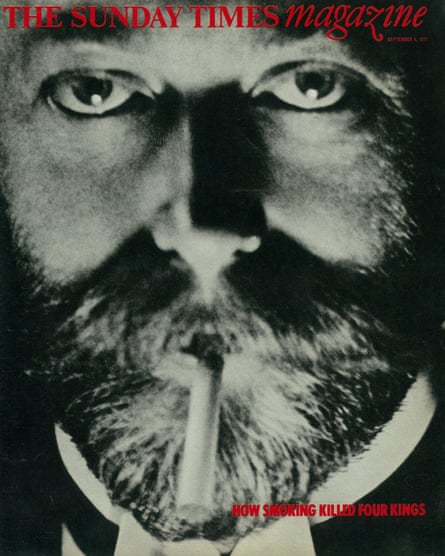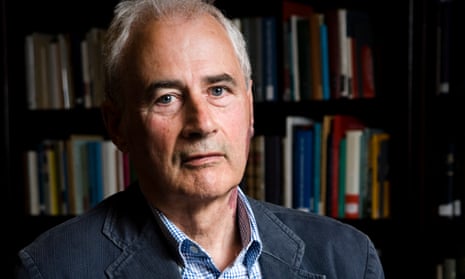The medical journalist Oliver Gillie, who has died aged 83 of lymphocytic leukaemia, once said that his chief duty as a reporter was to be “a reasoning critic” of developments in medicine, as well as a celebrant of the good they often, but not always, did. Science writing had changed dramatically over the previous two decades, he wrote in 1980: a shift from the “simple popularisation of expert knowledge” in the didactic spirit of Thomas Huxley and HG Wells to a stance that was more analytical, informed by a greater awareness of the damage caused by uncontrolled pollution and the too-ready use of pharmaceuticals.
Gillie was in the vanguard of this revolution. Over a journalistic career lasting more than 40 years, he wrote with great versatility about subjects that in the 1960s and 70s were only beginning to edge their way into the macho atmosphere of newspaper offices, where a foreign coup traditionally commanded more respect, space and attention than news of new birthing methods or the diets least likely to cause heart disease or cancer.
Healthy food, the risks of the contraceptive pill, the easiest way to stop smoking, the best exercise: all these ordinary topics interested him and featured regularly in his health page, the first to appear in a British newspaper, which he started in the Independent in 1986.
He believed in self-improvement and the unorthodox, traits that had their foundation in his Quaker childhood – his father was a teetotal vegetarian who took cold-water baths – and were developed during his 15 pre-Independent years as medical correspondent of the Sunday Times, whose then editor, Harold Evans, was committed to spreading notions of what Gillie called “body maintenance” among the paper’s staff as well as its readers. Out of this spirit of self-help came his fascination with sunlight and its role in supplying the body with vitamin D.

Some saw Gillie’s behaviour as eccentric: he would run every day on Hampstead Heath wearing only shorts and trainers, sometimes embarrassing his children by collecting them from school bare-chested. But it was more than faddism. Gillie held a doctorate in genetics from Edinburgh University and before embarking on his journalistic career worked under Sir Peter Medawar at the National Institute for Medical Research in London. The central debate about human behaviour – whether the bigger influence is environmental or genetic – underpinned most of Gillie’s serious work, and with vitamin D he came down clearly on the side of the first.
Scotland’s Health Deficit: An Explanation and a Plan (2008) was a study of the excess mortality of a country that was, and by some measures remains, the sickest in Europe. It drew the attention of scientists and policymakers, and made a valuable contribution to public health.
Diet, poverty, social deprivation, alcohol, tobacco: many reasons had been advanced for Scotland’s ill-health and its slow rate of improvement, particularly by comparison with England and Wales, but the combination could never completely explain the country’s distressing morbidity statistics, even when heredity was included. South Asians in Scotland suffered more heart disease than South Asians in England, despite similar ancestry, diets and habits.
Gillie’s solution to the epidemiological puzzle known as “the Scottish effect” involved another form of deprivation: the population’s relative lack of vitamin D. It was caused, so Gillie argued, by the cloud cover that, especially in western Scotland, blocks out so much of the ultraviolet light that in other European countries and the US supplies 90% of a healthy person’s stock of the vitamin. His paper ran to 100 pages and attracted the support of many distinguished academics, including Harvard’s professor of nutrition and epidemiology, Edward Giovannucci, who said it made “a compelling case”. Today, thanks largely to Gillie’s work, the Scottish government recommends that everyone, including children, should consider taking a vitamin D supplement, particularly during the low-sunlight months that run from October to March.
Born in North Shields, at the mouth of the River Tyne in Northumberland, Oliver was the second of three brothers. His father, John Gillie, was a nautical instrument maker with a particular interest in ships’ magnetic compasses; he was also, as a Quaker elder, a pacifist. His mother, Ann (nee Philipson), studied fine art in Newcastle and Paris, and had a long and successful career as a painter and embroiderer whose pictures were collected privately in several countries and by public galleries in northern England.
Oliver went to local schools and then a private Quaker boarding establishment, Bootham school in York. He graduated with a first-class degree in natural sciences at Edinburgh, and after his PhD won a Fulbright scholarship to Stanford in California.
He had an intriguing, otherworldly kind of frankness – questions and remarks would just pop out – which perhaps came from a successful struggle to overcome self-consciousness. A large strawberry birthmark stretched across his left cheek and neck, and early in 1975 he decided to write about it, with photographs, in the features pages of the Sunday Times. The blemish, he wrote, had made him miserable and awkward – one of its effects was to lose him a place at Cambridge University after an interview with a don who had a similar mark “even more disconcerting than mine”, so that the pair froze in embarrassment. It was a bold piece of personal disclosure, much rarer then than now, and both honest and compassionate in its view of what disfigurement meant. “Someone with a crippled face does not get the sympathy of someone with a crippled leg … I understand how, with people uglier or more marked than myself, it can erode the mind like the drip of water on a stone.” It was typical of him.
Gillie sometimes reported on non-medical subjects, including modern slavery and the end of communism in Romania. His several narrative pieces for the Sunday Times magazine, including a close-up account of a heart transplant and the smoking habit that killed four kings, won him attention and added to his long list of awards.
His books ranged in subject matter from male impotence to sickle cell anaemia. His curiosity and wide reading of academic periodicals – what he called “the grey literature” – provided a constant stream of ideas and stories, and made him a valuable asset to his editors and newspapers.
He liked to run, walk and sail. Apart from his daily trots around the Heath, not far from where he lived, he ran two marathons when he was in his 40s. He and his family sailed regularly on the River Stour in East Anglia. In Scotland, he vowed to climb every Munro, a project that illness curtailed.
In 1969 he married the documentary film-maker Louise Panton. They had two daughters, Lucy and Juliet, and divorced in 1991. In 1999 he married Jan Thompson, a journalist and managing editor of the Guardian, and they had two sons, Calder and Sholto. She and his children survive him.
Oliver John Gillie, medical journalist and writer, born 31 October 1937; died 15 May 2021
